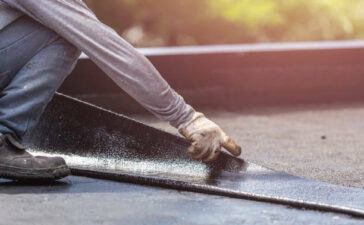Adverse weather conditions are typically seen around the beginning and end of summer. It’s crucial to periodically check the weather prediction because storms are more likely to occur around the middle and end of August. If one is coming, you need to be ready and protect your property in case of inclement weather. To that end, here are some tips on how to protect your house from a storm!
Inspect the roof(s)
You should inspect your roof once a year to see whether all the tiles are in place and whether there are any leaks in order to ensure that there will be the least amount of damage possible during a storm. A shingle is more prone to breaking loose if it is damaged. If it’s gone, there will be a space for the wind to enter and cause even more harm. Keep in mind that shingles need to be properly fastened while being installed or replaced. Therefore, it is not a bad idea to at least briefly check the roof when you hear a bad weather forecast!
Work on prevention
When a weather disaster occurs and your home is destroyed, you’ll sometimes have to spend a lot of money to fix everything that was broken. So, always plan ahead and have your home protected. For example, available 24 hours a day, Cotton GDS can send emergency crews to board up your property any time before a predicted natural disaster or damaging event occurs. Once the danger has passed, crews can once again immediately respond with emergency board-up services and roof tarping that keeps your property and assets safe and prevents additional damage and harm. Therefore, always make sure your property is safe before a storm comes!
Park your car in a garage
The best option for your car’s safety is to keep it in your garage during the storm. If not, keep it away from trees and any other area where there is a higher chance of debris or branches falling. If you don’t have a garage, ask a neighbor to lend you theirs if they have enough space. In any case, know that a car on the street is very susceptible to damage!
Check the gutters
One of the simplest ways to reduce the value of your house is water damage or flooding. The first line of defense in helping water flow away from your property is to make sure your gutters are clean. Remove any debris from the gutters if required and when you have the time. Therefore, if the gutters are clogged with leaves or other debris, water may overflow and harm the house’s exterior and interior walls. Also, make sure your drains are directed away from your foundation and that your gutters are free-flowing.
By the same token, check and regularly maintain the drains. A high amount of subsurface water or blocked sewage frequently causes water to return and spill via floor drains within the home. As a result, it is suggested that during the summer, these apertures at the lowest parts of the structure remain covered and securely secured.
Take precautions against lightning strikes
A lightning rod is typically found on top of large buildings or other tall structures and resembles a metal rod. It is a device that prevents atmospheric discharge and is installed on the roof of a home or structure. This gadget carries an electrical current into the earth during a lightning strike, stopping any fire or other harm. If the lightning rod is positioned correctly, it will offer good protection for nearby humans, pets, and property.
Shut off the electrical devices
It is important to turn off all essential electrical equipment before a storm, including computers, TVs, cell phones, freezers, refrigerators, and water heaters. It can all result in significant damage if lightning strikes the home or if water seeps into the system.
For example, shut down your computer as soon as possible if a storm is approaching your neighborhood because you risk losing all of your data. Direct contact from lightning with the wires might result in the burnout of the computer or other electrical device. When lightning directly strikes an electrical line, a problem arises. Even a slight shock in close proximity to a power line has the potential to deliver excess voltage into your house and seriously harm your devices. The same goes for the television, phone, and any other electrical device, which should also be unplugged from the power source.
It is crucial to safeguard your property in the best possible way. Therefore, make sure you implement some of the tips mentioned!






